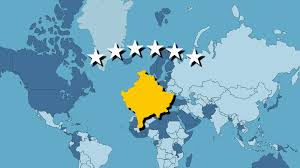The Role of Kosovo in the Yugoslav Wars: A Historical Perspective
The Yugoslav Wars, a series of conflicts that erupted in the 1990s following the disintegration of Yugoslavia, were marked by complexity and deep-seated ethnic tensions. Among the key players in these conflicts was Kosovo, a province with a predominantly Albanian population that became a focal point of violence, nationalism, and international intervention. Understanding Kosovo’s role in these wars requires a historical examination of its significance, the pre-war context, and the lasting implications of the conflict.
Historical Background
Kosovo’s history is steeped in layers of ethnic and religious identity. It was considered the heartland of Serbian heritage, home to important medieval Serbian churches and monuments, and has long been revered in Serbian culture. Conversely, by the late 20th century, Kosovo was predominantly inhabited by ethnic Albanians, whose calls for autonomy and rights clashed sharply with Serbian nationalism.
Following World War II, Kosovo was integrated into the Socialist Federal Republic of Yugoslavia. Its status fluctuated, shifting from an autonomous province to a part of the Republic of Serbia, often resulting in tension between its Albanian majority and Serbian authorities.
Prelude to War: Rising Tensions
The fall of communism in Eastern Europe and the death of Josip Broz Tito in 1980 exacerbated nationalist sentiments across Yugoslavia. In the late 1980s, Slobodan Milošević rose to power in Serbia, adopting a platform that appealed to Serbian nationalism. He propagated the idea of a "Greater Serbia," leading to increased oppression of Kosovo’s Albanian population.
In 1989, the Serbian government revoked Kosovo’s autonomy, leading to widespread protests and the establishment of parallel institutions by Albanians, including schools and a healthcare system. This atmosphere of conflict laid the groundwork for the eventual escalation into war.
The Outbreak of Conflict: 1998-1999
The situation escalated into armed conflict in early 1998 when the Kosovo Liberation Army (KLA), a guerilla group seeking independence for Kosovo, began to engage in violent confrontations with Serbian police and military forces. The Serbian government, in turn, responded with harsh military tactics to suppress the KLA, leading to significant civilian casualties and a humanitarian crisis.
The international community was slow to respond, but by late 1998, reports of widespread atrocities and a humanitarian crisis prompted NATO to intervene. In March 1999, after failed diplomatic efforts, NATO launched airstrikes against Serbian forces. This marked a significant turning point, as the international community began to take action against what was characterized as ethnic cleansing.
The Aftermath: Independence and International Involvement
The NATO intervention culminated in the withdrawal of Serbian forces from Kosovo in June 1999. Following the war, Kosovo was placed under UN administration, leading to a complex period of governance. In 2008, Kosovo declared its independence from Serbia, a move that was recognized by many countries but not by Serbia or several other states, including Russia and China.
The legacy of the war continues to shape the political landscape of the Balkan region. Ethnic tensions remain high, and the path to reconciliation has been fraught with challenges. Moreover, Kosovo’s independence has not fully resolved the issues stemming from the war, as debates about sovereignty and the rights of minority communities persist.
Conclusion
Kosovo’s role in the Yugoslav Wars illustrates the intricate interplay of nationalism, ethnicity, and international politics. The conflict in Kosovo not only reshaped the region but also highlighted the failures of the international community to address ethnic tensions earlier. Today, Kosovo stands as a testament to the impact of war on national identity and the ongoing struggle for autonomy and recognition in a complex geopolitical landscape. The lessons learned from Kosovo remain relevant as the world grapples with similar issues of identity and national sovereignty in various contexts.
For further insights and detailed analysis, refer to contemporary scholarly articles and resources examining the intricacies of the Yugoslav Wars and Kosovo’s pivotal role.


























Add Comment